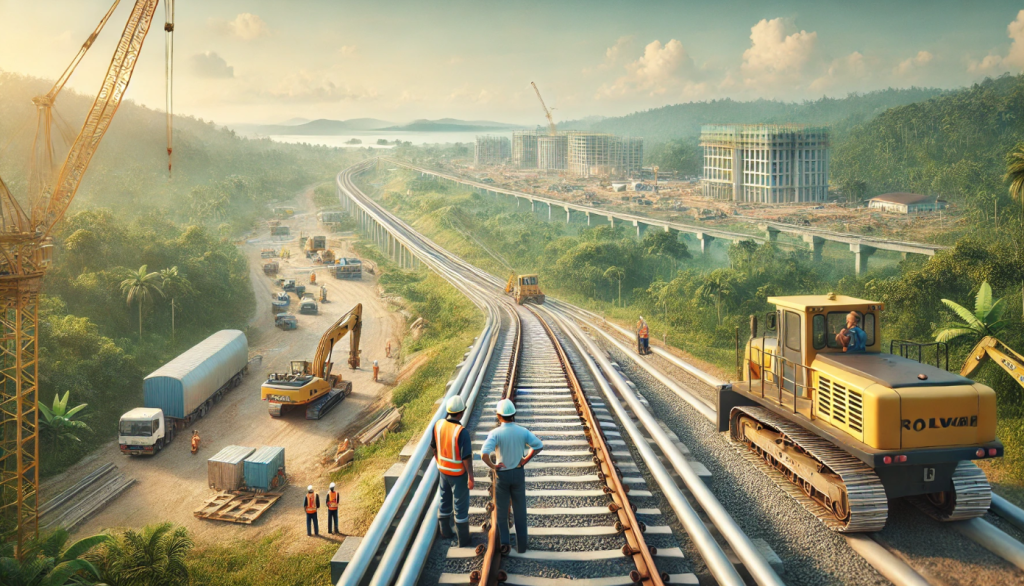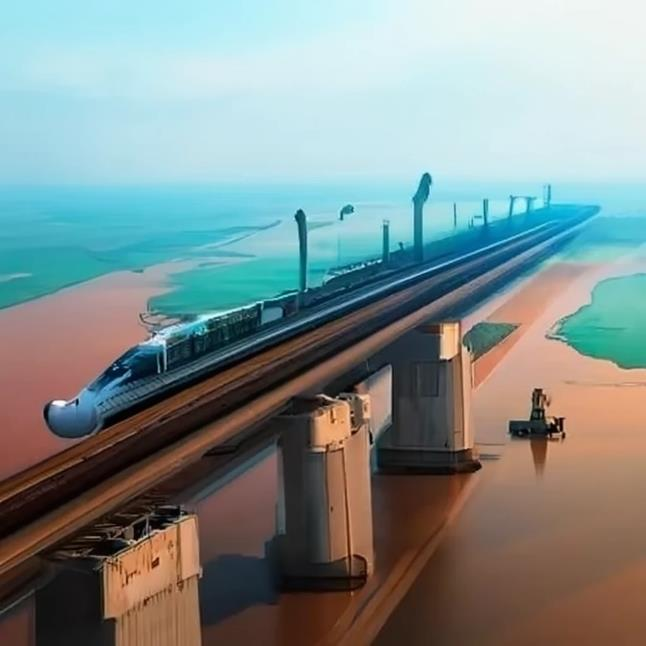
Introduction
The construction of a railway line connecting Sultan Aji Muhammad Sulaiman International Airport to Nusantara, the future capital of Indonesia, represents a transformative infrastructure project. This article explores the legal, economic, and environmental considerations necessary for its successful implementation. Through a detailed analysis of regulatory frameworks, potential partners, project phases, and expected outcomes, we highlight how Asiah LEGAL Jaya can play a pivotal role in ensuring project compliance and success.
1. Legal Framework for Railway Development in Indonesia
1.1 Key Laws and Regulations
- Law No. 23 of 2007 on Railways: Establishes rules for railway construction, operation, and maintenance.
- Government Regulation No. 33 of 2021: Provides operational guidelines, including licensing and environmental compliance.
- Ministerial Regulation No. 40 of 2015: Defines the responsibilities of the Directorate General of Railways (DGR).
- Ministerial Regulation No. 31 of 2012: Sets requirements for railway facility operator licenses.
- Ministerial Regulation No. 5 of 2021: Mandates environmental impact assessments (EIA).
Legal Insight:
A comprehensive understanding of these regulations is crucial to navigate permit acquisition, environmental compliance, and operational licensing.
2. Economic Potential and Investment Strategies
2.1 Demographic and Economic Overview
| Indicator | Value |
|---|---|
| Population (East Kalimantan) | 3.5 million |
| GDP | $10 billion |
| GDP Growth Rate | 5% per year |
| Major Industries | Oil, Gas, Mining |
| Unemployment Rate | 5% |
The rapidly growing economy of East Kalimantan underscores the need for enhanced transport infrastructure, promising high returns on investment.
2.2 Project Cost and Funding
| Project Phases | Estimated Cost | Duration |
|---|---|---|
| Phase 1: Track Construction | $5 billion | 3 years |
| Phase 2: Station Development | $2 billion | 2 years |
| Phase 3: Operations & Maintenance | $1 billion/year | Ongoing |
Total Estimated Cost: $10 billion
Investment Sources:
- Government Funding: $5 billion
- Private Investment: $5 billion
2.3 Economic Impact
| Economic Indicator | Expected Impact |
|---|---|
| Job Creation (Construction) | 10,000 jobs |
| Job Creation (Operations) | 5,000 jobs |
| Annual Revenue | $1 billion |
| ROI | 10% |
3. Environmental Considerations
3.1 Environmental Challenges
- Deforestation: Track construction through forested areas.
- Habitat Disruption: Potential impacts on wetlands.
- Pollution: Noise and emissions during construction.
Proposed Mitigation Strategies:
- Conducting detailed environmental impact assessments (EIA).
- Establishing buffer zones.
- Implementing noise reduction and emission control technologies.
4. Potential Partners and Companies
| Company Name | Expertise |
|---|---|
| PT Kereta Api Indonesia | Railway construction and operation |
| PT Wijaya Karya (Persero) Tbk | Infrastructure development |
| PT PP Properti Tbk | Property development near stations |
| PT Jasa Marga (Persero) Tbk | Toll road and transport infrastructure |
Recommendation: PT Kereta Api Indonesia is well-positioned due to its experience, government support, and operational capacity.
5. SWOT Analysis of PT Kereta Api Indonesia
| Strengths | Weaknesses |
|---|---|
| Large railway network | Aging infrastructure |
| Experienced workforce | Limited tech investments |
| Government support | Low profit margins |
| Opportunities | Threats |
|---|---|
| Rising population demand | Economic downturns |
| Government infrastructure push | Political instability |
6. Deployment Roadmap
| Phase | Key Activities | Duration |
|---|---|---|
| Phase 1: Pre-Construction | Environmental assessments, permits | 1 year |
| Phase 2: Construction | Track and station building | 3 years |
| Phase 3: Operations | Maintenance and service launch | Ongoing |
Conclusion
The construction of the railway line from Sultan Aji Muhammad Sulaiman Airport to Nusantara presents a landmark opportunity for East Kalimantan’s development. Asiah LEGAL Jaya, with its expertise in regulatory compliance and legal advisory, can be instrumental in guiding project stakeholders through legal, economic, and environmental complexities, ensuring a sustainable and profitable project.
Ready to invest or need legal consultation? Contact Asiah LEGAL Jaya today!


Leave a Reply